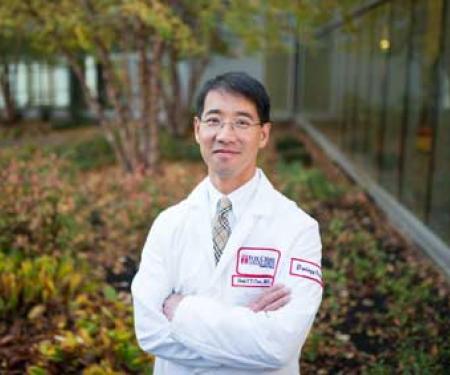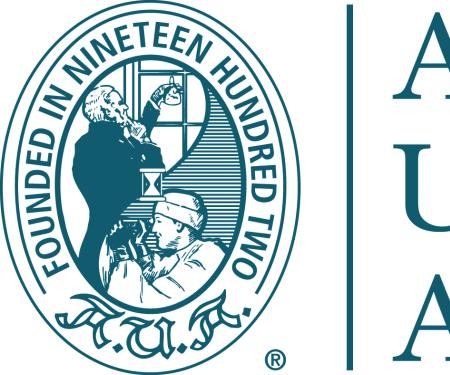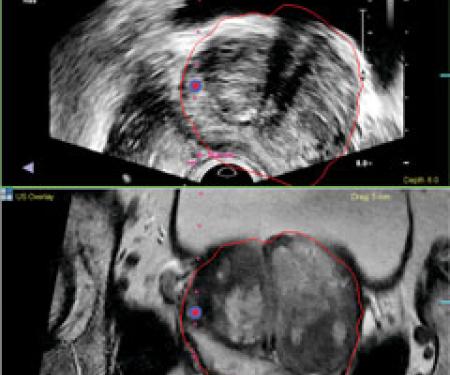Related Articles
00 / 00

Request an Appointment
Professor, Department of Urology
Associate Director, Urologic Oncology Fellowship Program
Carol and Louis Della Penna Chair in Urologic Oncology
Bladder Cancer, Prostate Cancer, Urethral Cancer, Adrenal Tumor, Penile Cancer, Ureteral Cancer, Kidney Cancer, Testicular Cancer
Urinary Diversions, Minimally Invasive Surgical Techniques - Laparoscopic, Robotic Surgery, Robotic Surgery and Urologic cancer ablation therapy (cryoablation, HIFU, IRE/Nanoknife)
I am a urologic oncologist specializing in surgical treatment of cancers of the genitourinary tract. I have extensive experience with laparoscopic and minimally invasive surgical techniques and apply these approaches routinely to reduce the pain, recovery time, and complications associated with traditional open surgery.
I am skilled in nerve-sparing and organ-reconstructive surgery essential for preserving normal functions when treating prostate, testis, bladder and kidney cancer. I am sensitive to the particular issues regarding the diagnosis of genitourinary cancer and its subsequent treatment, including its physical and emotional effects on the patient and their family and support system.
I recognize each person is unique and requires a treatment individually tailored to them to achieve successful cancer treatment, limited treatment-related side effects and maintained quality of life.
MD, Weill Cornell Medical Center, Cornell University, New York, NY, 1997
• Philadelphia Magazine Top Doctors, 2011-2025
• Main Line Today Top Doctors, 2018-2025
• Best Doctors in America® , 2019-2025, Urology
• America’s Top Doctors®, 2011-25
• Top AAPI Doctors, 2024-2025
In the early 2000s I was a real estate agent living and working in Ocean County, New Jersey.

I was treated for prostate cancer in 2016, getting radiation therapy near where I live in Gettysburg, Pennsylvania. It worked for a while, but not long enough, because in 2022 my PSA level started going up again.

At 73, I’m totally invested in my health and vigilant about keeping up with my doctors’ visits. When I went to my primary care physician in 2020, he alerted me that my PSA level was up, an indication that I had a problem with my prostate. I know the normal range is from 1 to 4. Mine was 5.2. “We’ll take another PSA down the road,” the doctor said. We did another one, and that was 5.6.

Nineteen years ago, just after I turned 60, I was diagnosed with bladder cancer. I had noticed some blood in my urine, and the first doctor I talked to told me not to worry about it. Then over the next few months it got worse, and I decided to go to Fox Chase Cancer Center.
Correa AF, Handorf E, Joshi SS, Geynisman DM, Kutikov A, Chen DY, Uzzo RG, Viterbo R, Greenberg RE, Smaldone MC. Differences in Survival Associated with Performance of Lymph Node Dissection in Patients with Invasive Penile Cancer: Results from the National Cancer Database. J Urol, 199(5):1238-44, 2018. PubMed
Martin JM, Handorf EA, Price RA, Cherian G, Buyyounouski MK, et al. Medical dosimetry : official journal of the American Association of Medical Dosimetrists. 2015; 40(3):186-9. NIHMSID: NIHMS656177 PubMed
Hypoalbuminaemia is associated with mortality in patients undergoing cytoreductive nephrectomy. Corcoran AT, Kaffenberger SD, Clark PE, Walton J, Handorf E, et al. BJU international. 2015; 116(3):351-7. PubMed
The following ratings and reviews are based on verified feedback collected from independently administered patient experience surveys. The ratings and comments submitted by patients reflect their own views and opinions. Patient identities are withheld to ensure confidentiality and privacy. Learn more about our Patient Experience Ratings.





















Patient comments
Very impressed with Dr. Chen and his consultation on my issue with my wife me.
When you need the best care, you go to best care hosipital.Dr Chen is the best.
My experience with Fox Chase is 100% top notch and Dr Chen he is the best. Dr Chen has given me the best care that I could ever imagine. I will be forever grateful to him. My cancer started over 2 years ago and since I have been seeing Dr Chen I am still cancer free.
dr. Chen and his staff were excellent. He is caring, personable, extremely knowledgeable and was thorough answering all of my questions regarding prostate cancer. and reviewed all of my extensive testing with me in detail I believe he is top in his field in every way and he and his team are excellent
Dr Chen always listens and is respectful.